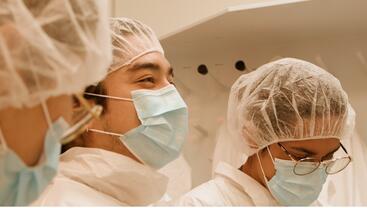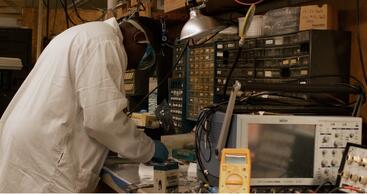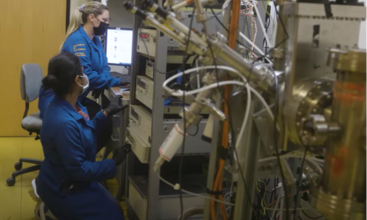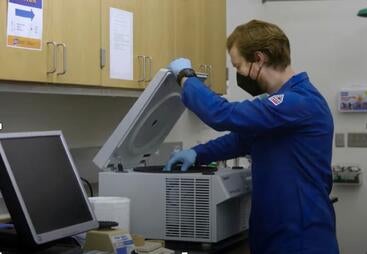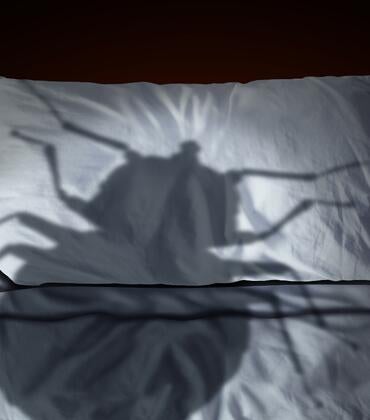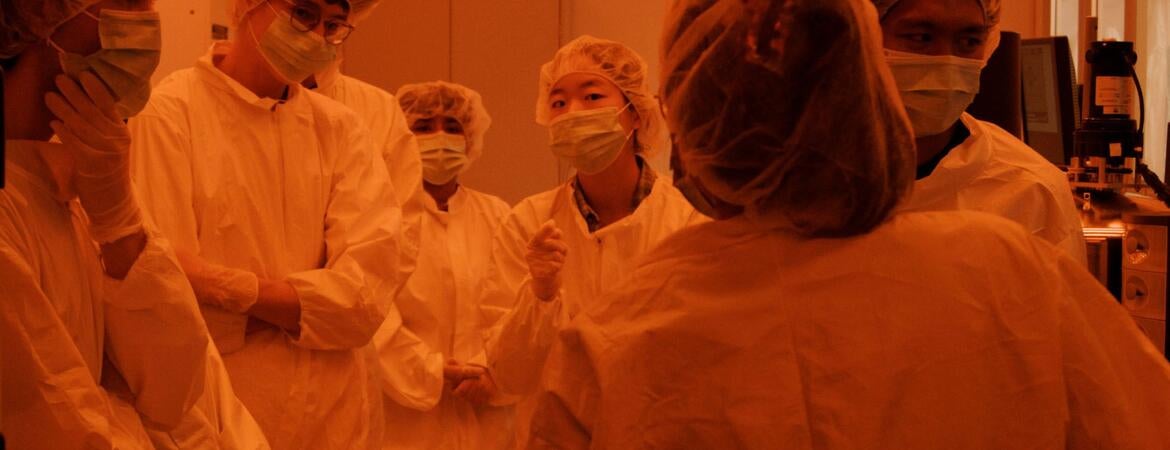
To some Inland Empire undergraduates, getting paid to learn microchip manufacturing, resume writing, and professional networking sounds like a dream. This year, UC Riverside is celebrating a decade of making this dream a reality.
“When I co-founded this program, it was with an eye toward getting local youth into high-tech engineering careers, and the graduate programs required to attain them,” said UCR chemistry professor Ludwig Bartels, who co-founded the Materials Connection Research Experience for Undergraduates, or MacREU program.
To date, 190 students have completed the nine-week summer program, which receives $130,000 annually from the National Science Foundation.
This Thursday, Aug. 17, the 2023 cohort will graduate from the program with a poster session promoting the students’ research and a ceremony featuring Rodolfo Torres, UCR Vice-Chancellor for Research and Economic Development and Christopher Lynch, dean of UCR’s Marlan and Rosemary Bourns College of Engineering.
Essential courses in the program teach the science and engineering of semiconductors. A semiconductor is like a halfway point between something that conducts electricity, like metal, and an insulator, like quartz. They are used in electronic devices to control the flow of electricity.
“At the heart of each semiconductor device is a transistor that can turn current on and off based on an applied voltage. Knowing how to deposit, modify and characterize layers of thin films is fundamental to making these devices, and that’s a big part of what we teach,” Bartels said.
Other course offerings include improvements in modern lithium-ion batteries, and the chemistry involved in plastic recycling. The participants’ research opportunities span electrical, mechanical, and chemical engineering, as well as bioengineering, physics and chemistry.
Just as essential as the technical courses are the resume writing and professional development courses, as well as visits from MacREU alumni.
“Guest speakers have included a previous MacREU fellow who is now a manager at Intel. He tells our program participants what he looks for when he is hiring. Another MacREU graduate now supports startups from an incubator in San Diego. She teaches current students how to start a high-tech business, what’s it like to work in a startup, and how to get funded from government Small Business Innovation Research grants or venture capital,” Bartels said.
One former program participant shares his experience in the hope it will inspire others to apply. Jacob Gower was at Riverside City College studying math and physics last year when he heard about the program.
“I had no concept of what research was like, and I wanted to explore academia, so I applied and was accepted,” Gower said. “I was incredibly intimidated. I kept telling my friends I was going to big kids’ school for the summer.”
Despite his reservations, and having a limited background in chemistry, Gower took a leap of faith, and found himself surrounded by supportive students and mentors as he explored different catalyst formulations in a surface chemistry laboratory.
“I got a slice of life as a researcher, and I loved it,” Gower said. He has since transferred to UCR and returned this year as the mentor of the MacREU cohort.
Though undergraduates from any college are welcome to apply, MacREU cultivates relationships with students like Gower and their advisors at local community colleges in order to create a diverse cohort of participants. The 2023 group is predominantly local, female, and Latina.
“Our goals mirror those of the U.S. CHIPS and Science Act of 2022. We aim to boost innovation in the American high-tech and microprocessor manufacturing industries while promoting a diverse STEM workforce,” Bartels said. “MacREU is boosting opportunities for young adults here in Riverside and San Bernardino counties at the same time.”
